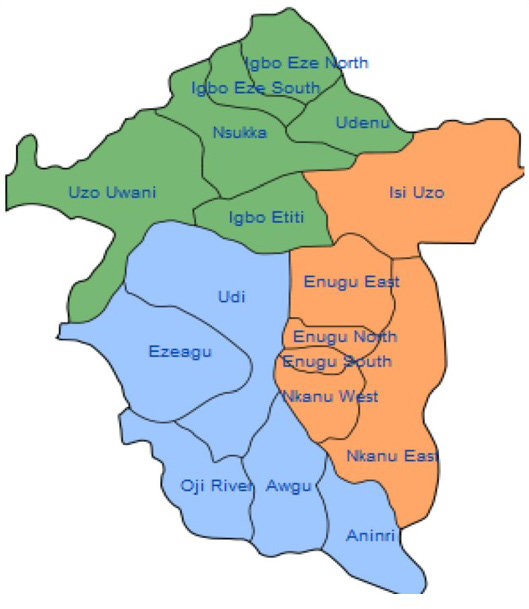Enugu State
States Jan 03, 2025

Table of Contents
History and Cultural Heritage of Enugu State, Nigeria
Enugu State, often referred to as the “Coal City State,” is a region steeped in history and cultural heritage. Located in southeastern Nigeria, it holds a significant place in the nation’s historical and economic narrative. From its early beginnings as a coal mining hub to its present-day role as a center of Igbo culture and tradition, Enugu State offers a rich tapestry of stories that reflect Nigeria’s evolution over the years.
Early History of Enugu State
The origins of Enugu can be traced back to the 17th century when small settlements began emerging in the area. The name “Enugu” is derived from two Igbo words, “Enu Ugwu,” meaning “top of the hill,” a reference to the region’s hilly geography. The indigenous people of Enugu are predominantly of the Igbo ethnic group, one of the largest ethnic communities in Nigeria.
Before the arrival of colonialists, the people of Enugu were primarily agrarian, engaging in farming, hunting, and other traditional occupations. The region’s fertile soil and favorable climate made it ideal for the cultivation of crops such as yam, cassava, and palm produce. These agricultural activities laid the foundation for the area’s economic stability.
The Discovery of Coal and Economic Transformation
Enugu’s modern history began in 1909 with the discovery of coal by a British mining engineer named Albert Kitson. This discovery marked a turning point for the region, as it became the first site of coal mining in West Africa. The establishment of the Udi Coal Mine in 1915 led to rapid urbanization, as laborers from across Nigeria migrated to Enugu in search of work opportunities.
The coal industry played a pivotal role in Nigeria’s economy during the colonial period, supplying energy for transportation and industrial activities. Enugu quickly grew into a vital economic center, earning it the nickname “Coal City.” The development of railroads connecting Enugu to Port Harcourt facilitated the export of coal, further boosting its prominence.
Enugu’s Role in Nigeria’s Political Evolution
Enugu State is also notable for its contributions to Nigeria’s political history. During the colonial era, Enugu became a center for labor movements and political activism. The famous Enugu Coal Miners’ Strike of 1949, where miners protested poor working conditions and low wages, is an important chapter in Nigeria’s labor history. Although the strike was met with violent repression, it highlighted the need for workers’ rights and inspired similar movements across the country.
In post-independence Nigeria, Enugu served as the capital of the Eastern Region and later the short-lived Republic of Biafra during the Nigerian Civil War (1967–1970). This period left a significant mark on the state, shaping its political and social landscape to this day.
Cultural Heritage and Traditions
Beyond its historical significance, Enugu State is a vibrant cultural hub for the Igbo people. Traditional festivals such as the New Yam Festival (Iri Ji) are celebrated annually, showcasing the region’s rich heritage. These festivals are marked by colorful masquerades, traditional dances, and communal feasting, drawing visitors from across Nigeria and beyond.
Enugu is also known for its artistic expressions, including music, dance, and crafts. The state is home to several cultural institutions, such as the National Museum of Unity and the Enugu State Arts and Crafts Village, which preserve and promote Igbo traditions.
Modern-Day Enugu State
Today, Enugu State is a thriving region with a blend of historical landmarks and modern infrastructure. The state’s capital, Enugu City, is a bustling metropolis that retains its colonial charm while embracing contemporary development. Key attractions include the Ngwo Pine Forest, Awhum Waterfall, and the Milken Hills, which offer breathtaking views and opportunities for outdoor recreation.
Enugu’s economy has diversified beyond coal mining to include industries such as agriculture, manufacturing, and tourism. The state government continues to invest in education and healthcare, ensuring a better quality of life for its residents.
Conclusion
Enugu State’s history is a testament to the resilience and resourcefulness of its people. From its humble beginnings as a collection of agrarian communities to its rise as a coal mining powerhouse and cultural epicenter, Enugu has played a vital role in shaping Nigeria’s story. Visitors to Enugu State can immerse themselves in its rich heritage, explore its scenic landscapes, and experience the warmth of its people.
